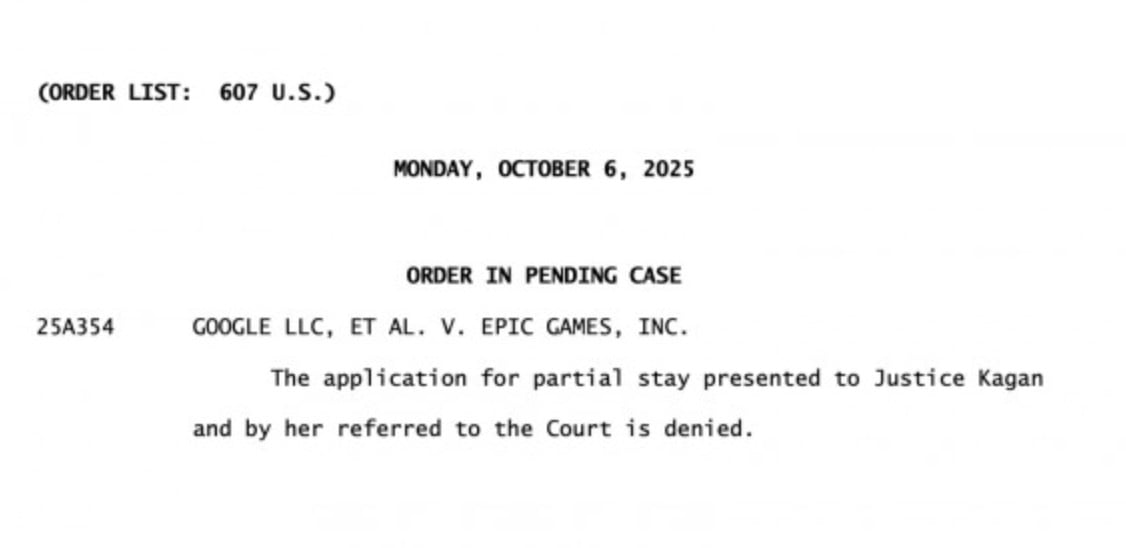Google will be required to proceed with major overhauls to its Play Store following the US Supreme Court’s decision on Monday not to freeze a lower court order, despite the company’s efforts to delay enforcement while it challenges a lawsuit from Epic Games.
The high court declined to grant Google’s emergency request to pause parts of an injunction that Epic secured in its antitrust case, which centers on allegations that the tech giant unlawfully restricted how apps are distributed and monetized on Android devices.

Epic, known for creating Fortnite, brought the lawsuit in 2020, accusing Google of using its dominant position to suppress competition.
A San Francisco jury ruled in Epic’s favor in 2023, and US District Judge James Donato followed up with a sweeping order requiring changes to how Google runs its app ecosystem.
Under that ruling, Google must begin allowing developers to include links within their apps that lead users to outside payment options, bypassing Google’s billing system.
That part of the order is scheduled to take effect later this month. Additional requirements, such as enabling the installation of third-party app stores within the Play Store and giving competitors access to Play’s app listings, are set for July 2026.
Although a federal appeals court upheld the injunction in July, Google continued to argue that the changes would expose users to security vulnerabilities, damage the company’s reputation, and create a disadvantage in the marketplace.
The company emphasized in its court filings that over 100 million Android users in the US and half a million developers could be affected.
Google is preparing to submit a full petition to the Supreme Court by October 27, potentially positioning the case for review during the court’s current term.
Epic countered Google’s concerns, claiming the company is using “flawed security claims” to justify maintaining tight control over the Android ecosystem.
In its response, Epic urged the justices to let the injunction proceed, saying it would lead to “competition, choices, and lower prices” for users and developers.
The Ninth Circuit panel that upheld the injunction described the case record as “replete with evidence” of anticompetitive conduct that helped Google maintain its dominant position.












